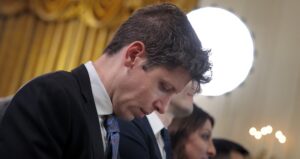
In a surprising ruling on Wednesday, May 28, the U.S. Court of International Trade blocked President Donald Trump from imposing most of his tariffs, bringing yet more uncertainty to the global economic order.
President Trump’s tariffs have upended international trade, and the at-times slapdash rollout of his “Liberation Day” tariffs has led to price increases, dramatic political fights, and high-stakes negotiations with both trading partners and foes.
Now, a three-judge panel at the federal trade court has ruled that the president exceeded his authority in imposing tariffs under emergency powers. The U.S. Constitution explicitly gives Congress the authority to regulate tariffs, but the Trump administration has appropriated this power, claiming the loss of manufacturing jobs, fentanyl trafficking, and trade deficits constitute a national emergency.
The court examined whether the International Emergency Economic Powers Act of 1977 (IEEPA) grants the president the “authority to impose unlimited tariffs on goods from nearly every country in the world.” In the ruling, the judges set aside many of Trump’s tariffs, his signature economic policy. The New York Times reports that no president has ever tried to impose tariffs under the IEEPA until now.
The ruling notes that the president “has declared several national emergencies and imposed various tariffs in response,” as well as issuing a “number of pauses and modifications.” In an often-blunt ruling, the judges found that giving the president unlimited powers to impose tariffs is unconstitutional, and that Congress may not permanently delegate these powers to the executive branch. Thus, they ruled that the “IEEPA does not authorize any of the Worldwide, Retaliatory, or Trafficking Tariff Orders.”
The case was brought by dozens of states that have paid import duties since the tariffs went into effect.
The three judge panel includes a judge appointed by President Trump himself, as well as judges appointed by Ronald Reagan and Barack Obama, according to the Associated Press.
So, what happens next?
Since taking office just 129 days ago, President Trump has repeatedly been blocked by federal judges from exercising novel presidential powers. The latest setback deals a potentially lethal blow to the Liberation Day tariffs. The White House has 10 days to comply with the ruling, per The New York Times.
However, that doesn’t mean the Trump tariffs are dead just yet. Future tariffs, such as the recently threatened smartphone tariffs on iPhones, could be put into effect by Congress. The White House is also certain to challenge this ruling with the Supreme Court, which has already reversed several federal court rulings that blocked the president’s executive orders and other actions.
President Trump appointed three of the conservative judges that make up the majority block on the Supreme Court, but those same judges have sometimes frustrated the president by ruling against his wishes.
Republicans in Congress are also extremely loyal to the president. They could put the Trump tariffs back into place under their own authority, in effect becoming a rubber stamp for the Trump administration.
“It is not for unelected judges to decide how to properly address a national emergency,” said White House spokesman Kush Desai in a statement reported by Axios. “President Trump pledged to put America First, and the Administration is committed to using every lever of executive power to address this crisis and restore American Greatness.”







